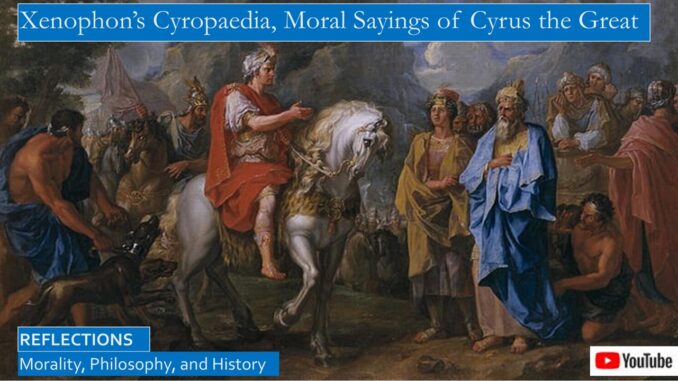
What can we learn by reflecting on Xenophon’s Cyropaedia, the life of King Cyrus the Great of Persia?
We have already reviewed this biography, which included many sayings.
We will reflect on additional moral maxims, qualities of an enlightened monarch, advice for generals, and a look at divine and romantic love.
Xenophon’s Cyrus the Great in his Cyropaedia has many purely moral sayings, including: “Vice, passing lightly along her path of pleasure, wins the hearts of thousands with her gifts; but Virtue, toiling up the steep ascent, has little skill to snare the souls of men and draw them after her, when all the while their comrades are calling to them on the easy downward way.”[1]
Xenophon penned a delightful work where Hercules encounters Lady Virtue and Lady Vice, where Lady Virtue seeks to guide him on the true path, while Lady Vice attempts to seduce him.
YouTube Script with more Book Links:
https://www.slideshare.net/BruceStrom1/xenophons-cyropaedia-moral-sayings-of-cyrus-the-great-king-of-persia
YouTube for this blog, with illustrations: https://youtu.be/Y3ULbvPEmik
Xenophon’s Cyropaedia, Biography of Cyrus the Great, King of Persia
https://seekingvirtueandwisdom.com/xenophons-cyropaedia-biography-of-cyrus-the-great-king-of-persia/
https://youtu.be/E4BFSIpHHGk
Xenophon’s Cyrus “never lost an opportunity to show kindness wherever he could, convinced that just as it is not easy to love those who hate us, so it is scarcely possible to feel enmity for those who love us and wish us well.”[2]
Xenophon’s Cyrus sees a difference “between modesty and self-control: the modest man will do nothing shameful in the light of day, but the man of self-control will do nothing base, not even in secret.” Those who are self-restrained “cannot be dragged from the pursuit of virtue by the pleasure of the moment.”[3]
“Success breeds insolence in many hearts, while suffering teaches sobriety and fortitude.”[4]
SAYINGS ON ENLIGHTENED MONARCY
Xenophon’s Cyrus warns us that if we fall to the temptations of the “life of indolence and luxury, the life of the degenerate who thinks that labor is the worst of evils and freedom from toil the height of happiness, then the day will come, and speedily, when we shall be unworthy of ourselves, and with the loss of honor will come the loss of wealth.”[5]
Xenophon’s young Prince Cyrus discusses obedience with his father, King Cambyses. Cyrus observes, “Our laws” lead us to this “double lesson: ‘Rule thou and be thou ruled.’” Reflecting on this, it “seems that the real incentive to obedience lies in the praise and honor that it wins, and the discredit and chastisement which the disobedient experience.”
His father, King Cambyses, responds: “That, my son, is obedience by compulsion.” Better is the “obedience of the will.” Men “will obey with joy the man whom they believe is wiser than themselves,” just as the sick patient listens to his doctor. “But if men think that obedience will lead them to disaster, then nothing, neither penalties, nor persuasion, nor gifts, will rouse them.”[6]
Xenophon’s Cyrus notes, when “we require good workers and comrades in any task, it is better and pleasanter to encourage them by kind speeches and kindly acts than to drive them by pains and penalties.”[7]
Xenophon’s Cyrus observes that many believe that “the ruler should only differ from his subjects by the splendor of his banquets, the wealth of gold in his coffers, the length and depth of his slumbers, and his freedom from trouble and pain. But my views are different: I hold that the ruler should be marked out from other men, not by taking life easily, but by his forethought and his wisdom and his eagerness for work.”[8]
Xenophon reminds us that the actions of monarchs reveal their true character. His Cyrus observes, “A man may hate injustice and lies, but if no one offers him vast wealth or unbridled power or impregnable fortresses or lovely children, he dies before he can show what manner of man he is.”[9]
A wealthy allied noble ponders why the Persian army is less rapacious and more disciplined that most ancient armies: “While we have more goblets and more gold, more apparel and more wealth than you, yet we ourselves are not worth as much. We are always trying to increase what we possess, but you seem to set your hearts on perfecting your own souls.”[10]
Was Xenophon’s Cyrus the source of Benjamin Franklin’s response to the question of what sort of government the delegates of the Constitutional Convention had created: “A republic, if you can keep it.”[11]
Xenophon’s Cyrus the Great observes, “It is a great work to found an empire, but a far greater work to keep it. To seize it may the fruit of daring and daring only, but to hold it is impossible without self-restraint and self-command and endless care.”[12]
SAYINGS ON MILITARY AFFAIRS
Xenophon’s Cyrus says, “A man has no right to pray he might win a cavalry charge if he had never learnt how to ride, or triumph over master-bowmen if he could not draw a bow, or bring a ship safe home to harbor if he did not know how to steer, or be rewarded with a plenteous harvest if he had not so much as sown gain into the ground, or come home safe from battle if he took no precautions whatsoever.”[13]
Cyrus the Great never forgot that logistics was key to winning battles. His soldiers needed ample meals more than courageous pep-talks to fight well. “Bear this maxim before all others, never put off the collecting of supplies until the day of need., make the season of your abundance provide against the time of dearth.” Thus, “you will be free from blame from your soldiers, you will be more respected,” “your troops will then follow you with greater readiness, as long as they have all they need,” “and your words will carry greater weight.”[14]
The effective general must be seen as a comrade by his troops, sharing in their successes, sharing in their miseries. Xenophon’s Cyrus says, “In war, if the campaign is in summer, the general must willingly share in the sun and heat, and in winter the cold and the frost, and in all labors for toil and fatigue. This will make him beloved to his followers.”[15]
Cyrus’ father, King Cambyses, advises him that “you must plot, and you must plan, whatever the size of his force and your own, to catch his men in disorder when yours are well arrayed, unarmed when yours are armed, asleep when yours are awake, and you must wait until he is visible to you, and you are invisible to him.”[16]
Xenophon’s Cyrus reminds us that in a warrior culture, courage is virtue. “There can be no defense stronger than a man’s own gallantry. Courage should be our companion all our days. For if virtue leave us, nothing else whatever can go well with us.”[17]
Often the armies of the enemy far outnumbered his own. Xenophon’s Cyrus once told an ally, “if victory falls to those with the largest numbers, your fears for us are justified, and we are indeed in fearful danger.” “But if battles are decided by the qualities of those who fight, then, I say, take heart and you will never fail. You will find far more stomach for the fight among our ranks than theirs.”[18]
XENOPHON’S CYRUS ON DIVINE AND CARNAL LOVE
Xenophon includes an interesting story embedded in the larger narrative. In one of the battles, the forces of Cyrus captured a stunningly beautiful veiled and shy lady with her maidens who was the wife of an ambassador who was out of town when his wife was captured. When she is first captured, Xenophon does not tell us her name, she is like any other captured princess.
We learned in our study of the Iliad and the Torah that it was common for soldiers to force captured maidens to become concubines, or sex-slaves. But Cyrus the Great is a compassionate general, he assigns his trusted officer Araspas the Mede to protect her until her husband returns. Araspas initially says he has self-control, “for love is voluntary, and each man loves whom he chooses to love.”
Cyrus then asks, “If love be voluntary, why cannot a man cease to love when he wishes? I have seen men in love who have wept in agony, who were slaves to the one they loved, though before the fever took them, they thought slavery was the worst of evils.”[19]
Months pass, and “Araspas fell passionately in love with his prisoner, begging her to be his lover. She refused, faithful to her husband who was far away,” but she was reluctant to complain to Cyrus. But when “Araspas began to threaten her, saying that if she would not yield, he would have his will of her by force,” she then complained to Cyrus.
When Cyrus sent for him, “Araspas burst into tears of misery and shame, and was half dead at the thought of what Cyrus would do.”
But Cyrus reassured him, “Be comforted, we are told that the gods themselves are subject to desire, and I could tell you what love has forced some men to undergo, men who seemed most lofty and most wise.” He offered to send his friend off on an intelligence mission so he would not be tempted by the beautiful Pantheia, whose name Xenophon reveals, upholding her dignity. Cyrus asks him if he can leave this beauty.
Araspas responds to Cyrus, “I see now we have two souls. This is the lesson of philosophy that I have learned from the wicked sophist Love. If we had but a single soul, how could she be at once evil and good? How could she be both noble and base?” “It is clear that we have two souls, and when the beautiful soul prevails, all fair things are wrought, and when the evil soul has the mastery, she lays her hand to shame and wickedness. But today my good soul conquers because she has you to help her.” [20]
Xenophon was a student of Socrates, and in the Platonic dialogue, the Phaedrus, Socrates first describes the soul as a charioteer riding in a chariot pulled by an immortal divine steed and a mortal steed, corresponding to the good and evil soul in the Cyropaedia. The divine immortal steed fights to ascend to virtue, while the mortal steed pulls us to carnal earth. In this metaphor of the chariots Plato describes how each of us eternally battle in our soul between vulgar and divine love in our relationships.
Plato’s Dialogue of Phaedrus on Divine Love and the Heavenly Chariot, Part 2
https://seekingvirtueandwisdom.com/platos-dialogue-of-phaedrus-on-divine-love-and-the-heavenly-chariot-part-2/
https://youtu.be/BOtavup_N4g
The contrast between carnal or romantic love and divine love is also the main theme of the Symposium. Both Xenophon and Plato wrote similar dialogues for the Symposium, which means drinking party. In both dialogues, the guests deliver speeches, in Plato’s version they deliver speeches on love. The guest list is different for the two dialogues, but numbered among the guests for both dialogues are guests who were among the Thirty Tyrants after the Peloponnesian Wars, and those guests who would be executed by the Tyrants, leading to the reestablishment of the democracy. The final speech in both Symposia is a speech by Socrates on divine love.
Xenophon and Plato, Socratic Dialogue, Symposium, Romantic and Carnal Love, Part 1
https://seekingvirtueandwisdom.com/xenophon-and-plato-socratic-dialogue-symposium-romantic-and-carnal-love-part-1/
https://youtu.be/OIe5pn2S1Ls
Xenophon and Plato, Socratic Dialogue, Symposium, Divine and Noble Love, Part 2
https://seekingvirtueandwisdom.com/xenophon-and-plato-socratic-dialogue-symposium-divine-and-noble-love-part-2/
https://youtu.be/z6X3pwVTdrc
Cyrus sends for the husband of Pantheia, Abradates, telling him that his wife is safe. He is so grateful he and his forces joined the army of Cyrus. Pantheia exclaims to Abradates, “Bear in mind the great gratitude we owe to Cyrus, who, when I was his captive, chosen for his spoil, was too high-minded to treat me as a slave, or dishonor me as a free woman. He took me and saved me for you, as though I had been his brother’s wife.”[21] This magnanimity prompted many mighty warriors to pledge their true loyalty to Cyrus.
This tale of romantic love has a tragic ending, Abradates is later killed in battle. When Cyrus hears she is seated near his grave with his head on her knees, he gallops to meet her.
Cyrus tries to comfort her, “Lady, his end was the noblest and fairest that could be: he died in the hour of victory.” This was the warrior’s ardent desire, that his valor in battle would be remembered. Xenophon tells us, “Cyrus took his leave and went.”
Pantheia told her nurse, “When I am dead, cover us with the same cloak.” The nurse tries to stop her, but “Pantheia drew the scimitar across her throat, and dropped her head upon her husband’s breast and died.” “When Cyrus heard what Pantheia had done, he rushed out in horror to see if he could save her.” Then her maidens killed themselves also. “When Cyrus came to that place of sorrow, he looked with wonder and reverence on the woman, and wept for her,” “and saw that all due honor was paid to those who lay there dead.”[22]
In this story Xenophon is not celebrating the nobility of suicide, he sees it as a tragedy.
CONCLUDING SAYING OF CYRUS THE GREAT FROM HERODOTUS
Let us conclude with a saying by Cyrus from the conclusion of Herodotus’ history of the Greco-Persian Wars.
Herodotus concludes with a flashback to the Greeks’ favorite Persian, Cyrus the Great. One of his officials proposed to him, “Since Zeus has given empire to the Persians,” “let us leave this small and barren country,” the Persian homeland, “and take possession of a richer country.” “Aren’t we masters of many nations and all Asia?”
Cyrus the Great replied as great men reply, “Soft countries breed soft men.” Cyrus and his generation chose to rule from Persepolis, choosing “to live in a rugged land and rule rather than cultivating rich plains so they could be slaves to others.”[23]
DISCUSSING THE SOURCES
This translation is readable, though it is wordy, often we can cut a quarter of the words without changing the meaning.
We discussed the sources in-depth in our main video on Xenophon’s Cyropaedia. We also discuss Herodotus and the other Greek historians in our Book Reviews on Greek History and Philosophy.
Book and Lecture Reviews of Ancient Greek History and Philosophy
http://www.seekingvirtueandwisdom.com/book-and-lecture-reviews-of-ancient-greek-history-and-philosophy/
https://youtu.be/472aVKkPsk8
[1] Xenophon, Cyropaedia, The Education of Cyrus, translated by Mr Dakyns, Amazon reprint, Book 1, Chapter 2.24, p. 39.
[2] Xenophon, Cyropaedia, The Education of Cyrus, Book 8, Chapter 2.1, p. 170.
[3] Xenophon, Cyropaedia, The Education of Cyrus, Book 8, Chapter 1.31-32, p. 168.
[4] Xenophon, Cyropaedia, The Education of Cyrus, Book 8, Chapter 4.14, p. 182.
[5] Xenophon, Cyropaedia, The Education of Cyrus, Book 7, Chapter 5.74, p. 161.
[6] Xenophon, Cyropaedia, The Education of Cyrus, Book 1, Chapter 6.20, p. 22.
[7] Xenophon, Cyropaedia, The Education of Cyrus, Book 2, Chapter 4.10, pp. 44.
[8] Xenophon, Cyropaedia, The Education of Cyrus, Book 1, Chapter 6.8, p. 19.
[9] Xenophon, Cyropaedia, The Education of Cyrus, Book 5, Chapter 2.9, p. 98.
[10] Xenophon, Cyropaedia, The Education of Cyrus, Book 5, Chapter 2.20, p. 100.
[11] https://www.amphilsoc.org/blog/republic-if-you-can-keep-it
[12] Xenophon, Cyropaedia, The Education of Cyrus, Book 7, Chapter 5.76, p. 161.
[13] Xenophon, Cyropaedia, The Education of Cyrus, Book 1, Chapter 6.3, p. 18.
[14] Xenophon, Cyropaedia, The Education of Cyrus, Book 1, Chapter 6.10, p. 20.
[15] Xenophon, Cyropaedia, The Education of Cyrus, Book 1, Chapter 6.24, p. 23.
[16] Xenophon, Cyropaedia, The Education of Cyrus, Book 1, Chapter 6.35, p. 25.
[17] Xenophon, Cyropaedia, The Education of Cyrus, Book 7, Chapter 5.84, p. 162.
[18] Xenophon, Cyropaedia, The Education of Cyrus, Book 5, Chapter 2.35, p. 101.
[19] Xenophon, Cyropaedia, The Education of Cyrus, Book 5, Chapter 1, pp. 94-95.
[20] Xenophon, Cyropaedia, The Education of Cyrus, Book 6, Chapter 1, pp. 126-127.
[21] Xenophon, Cyropaedia, The Education of Cyrus, Book 6, Chapter 4.7, pp. 138.
[22] Xenophon, Cyropaedia, The Education of Cyrus, Book 7, Chapter 3.11-15, pp. 151-152.
[23] Herodotus, Histories, , translated by Aubrey De Selincourt (London, New York: Penguin Classics, 2003, 1954, originally Fifth Century BC), Book IX, Chapter 122, p. 603.

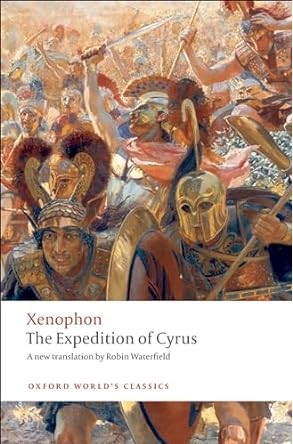

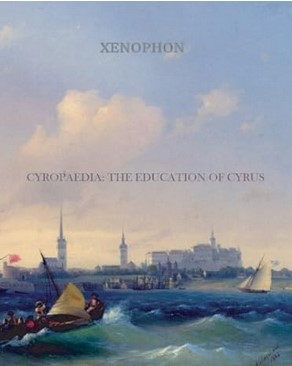
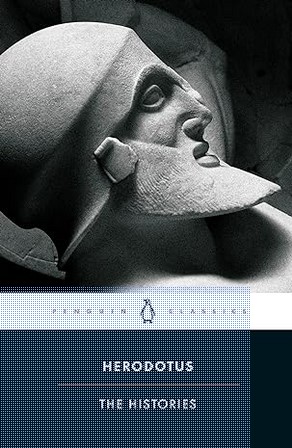
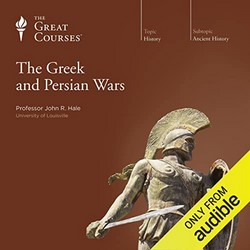
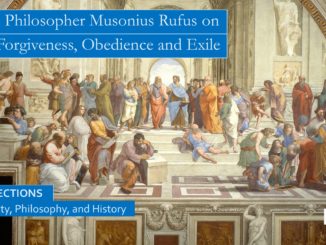
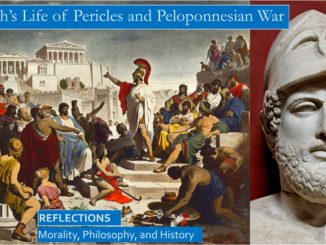
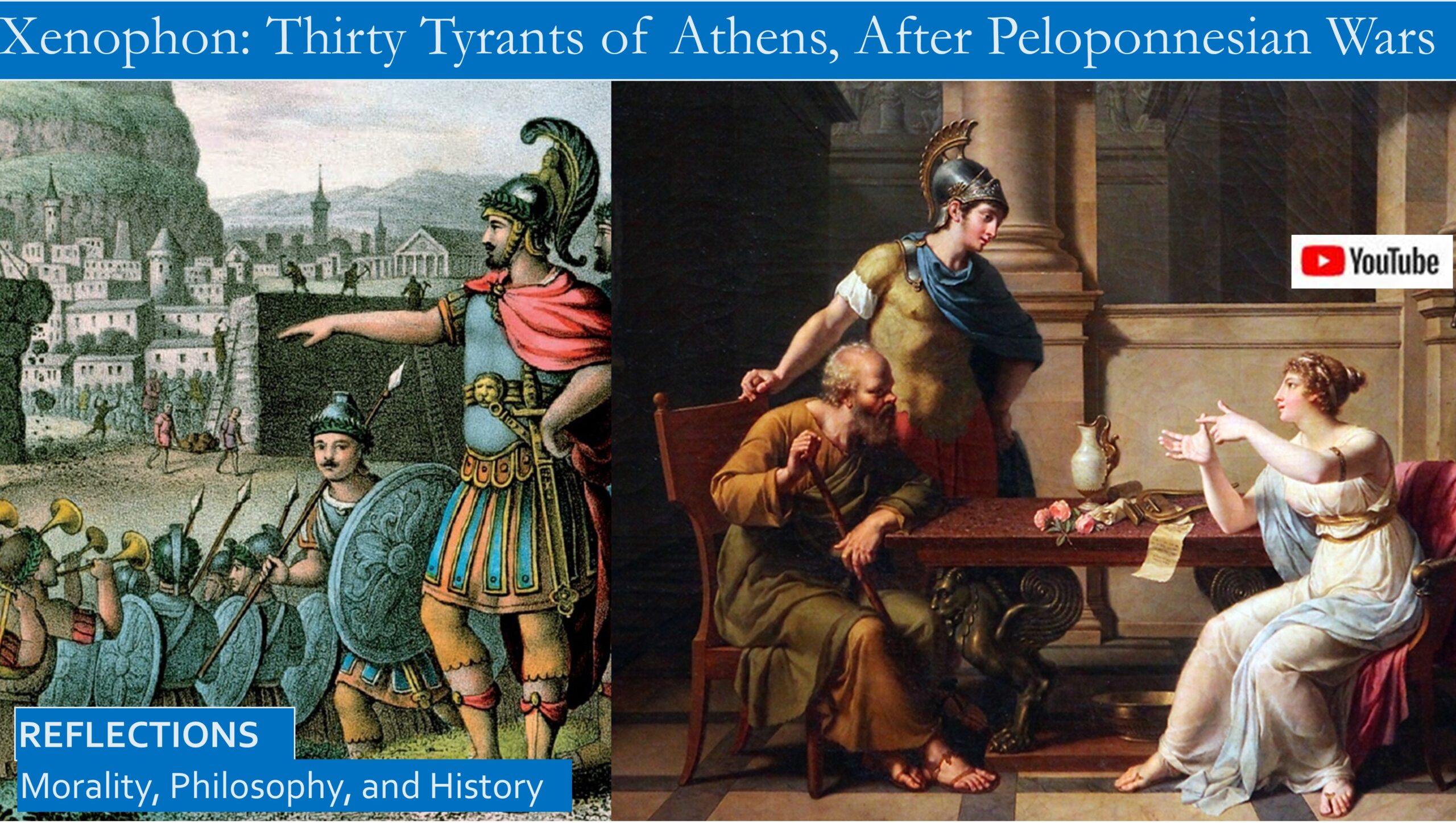
5 Trackbacks / Pingbacks